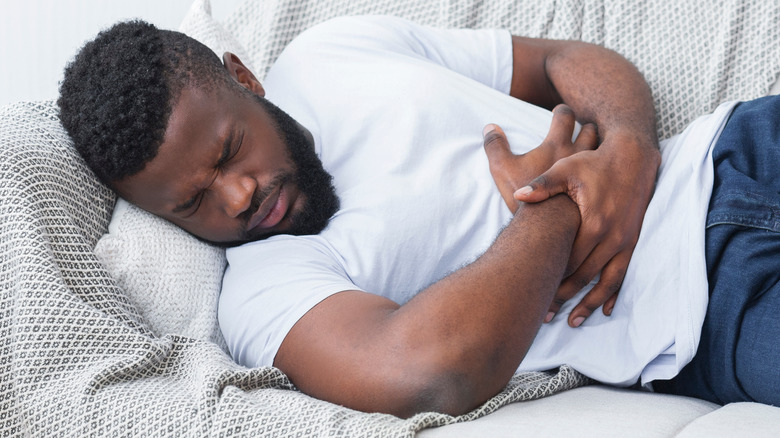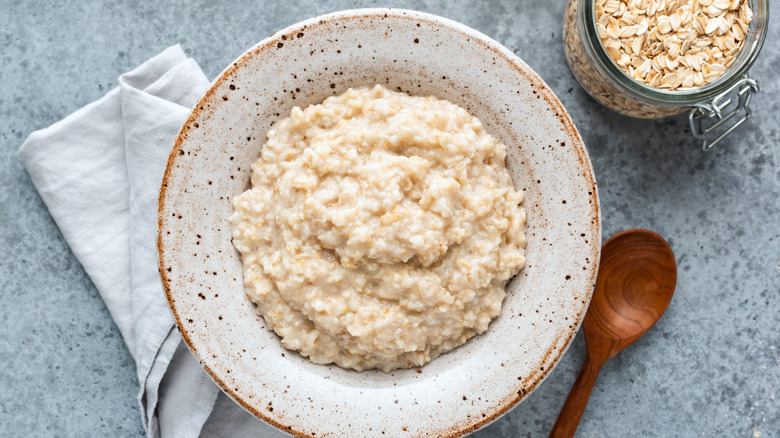This Is What You Should Eat When You Have Food Poisoning
According to the Centers for Disease Control and Prevention, food poisoning affects over 48 million people in the United States each year. There are some 250 foodborne diseases, caused by bacteria, parasites, viruses, and infections (via CDC). Per Healthgrades, E.coli, Salmonella, and Listeria are among a few common culprits, and food poisoning commonly results from drinking unclean water or eating undercooked meats, spoiled food, or unwashed produce.
"In cases of food poisoning, harmful organisms can produce toxins that irritate the lining of your stomach and intestines," Healthline explained. "This can result in painful inflammation in your stomach, which may cause pain in your abdomen." This may lead to diarrhea, fever, abdominal pain, and vomiting. Symptoms of food poisoning can surface within hours but may take days. Although you should take precautions to avoid food poisoning, eating a bland diet will hasten your recovery if you do get struck by the bug (via Healthgrades). Here's a look at what foods you should eat as you attempt to get well soon.
Meals to help you heal
If you have food poisoning, you're going to want to skip the flavorful foods for a time. Instead, WebMD recommends following the BRAT diet (bananas, rice, applesauce, and toast). Add in soft cereals, saltines, Jell-O, and oatmeal for variety. Kick fried foods and heavy carbs to the curb for the time being. Plus, avoid drinking alcohol, milk, coffee, and acidic fruit juices. The purpose of this drab diet is to strengthen the body and give ease during digestion.
Hydration is also paramount for healing. Take in lots of water and caffeine-free drinks to replenish electrolytes. Gentle teas like ginger and mint are also recommended by WebMD. Also, consider taking probiotics to replace healthy bacteria removed from the gut by diarrhea (via Livestrong).
Recovery time can span from one to 10 days. If symptoms become increasingly worse, do consult with a physician for treatment. And don't forget to rest. Your body will need rest to reboot and recover swiftly. Although most people recover from food poisoning, it can be life-threatening in severe cases, with people with weakened immune systems, expecting moms, children, and the elderly most at risk (via CDC).


